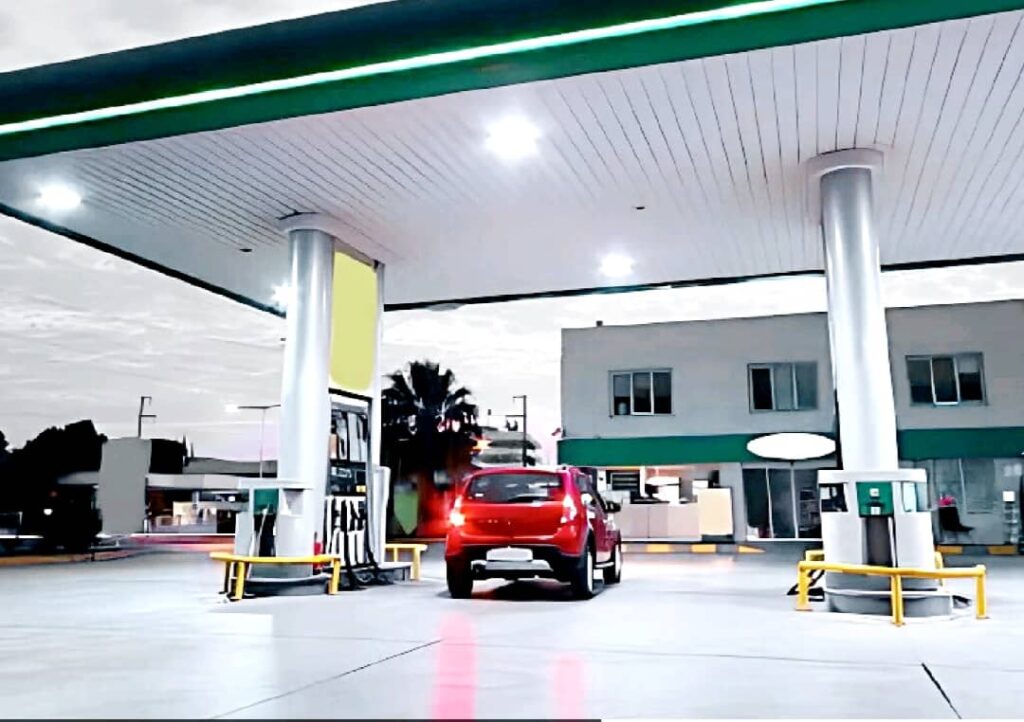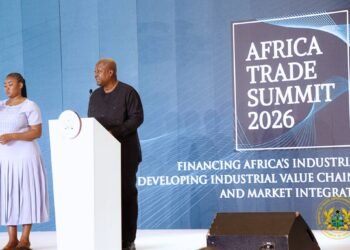The National Petroleum Authority (NPA) has moved to allay public fears, assuring Ghanaians that the country has sufficient fuel reserves to withstand potential shocks, amid growing fears of global supply disruptions due to the escalating conflict between Israel and Iran.
Speaking in a media interview, Chief Executive of the NPA, Edudzi Tamakloe, confirmed that Ghana currently holds over 200 million litres of petrol and more than 150 million litres of diesel—a stockpile he described as enough to sustain the country for over two months.
“I can assure the good people of Ghana that currently, as we speak, we have enough stock or reserve to last us beyond two months.
“With all efforts, we are confident that we wouldn’t have any problem with supply disruptions at all.”
Edudzi Tamakloe, Chief Executive of the NPA
His comments follow volatility in the international oil market, driven by rising tensions between Israel and Iran, which has triggered concerns over potential disruptions to shipping through the Strait of Hormuz, a key route for global oil trade.
Despite Ghana being a net importer of refined petroleum products, Tamakloe believes prudent fuel import strategies and improved local storage capacities have given the country a crucial buffer in uncertain times.
NPA Raises Red Flag on Illegal Fuel Stations

However, the NPA Boss raised alarms over the increasing proliferation of unauthorised fuel retail outlets across the country. CEO Edudzi Tamakloe, expressed grave concerns over the low penalties imposed on individuals and businesses that construct or operate illegal filling stations.
He argued that the current maximum fine—GH₵ 20,000—is not enough to deter offenders, some of whom rake in significant profits from unlawful operations.
“If the penalties are punitive enough, it will discourage those unscrupulous people from setting up filling stations in unauthorised places.
“We all remember the event that happened at Haatso and the panic it set in the whole system. We are trying so well to make sure that we minimise those incidents.”
Edudzi Tamakloe, Chief Executive of the NPA
The incident referenced is widely believed to be the October 2017 gas explosion at Atomic Junction near Haatso, which claimed seven lives and injured 132 others, exposing deep regulatory gaps in Ghana’s petroleum infrastructure oversight.
Call for Legislative Reform

The NPA is now lobbying Parliament for a legislative overhaul that will significantly increase fines and introduce custodial sentences for offenders. Under current NPA guidelines, infractions like constructing a retail outlet without authorisation attract a penalty equal to “five times the permit fee,” while selling adulterated fuel is capped at a GH₵ 20,000 fine.
Experts say these fines are inadequate in deterring illegal operations, especially when juxtaposed with the profits made through unregulated fuel distribution and the tax revenue losses involved.
According to a 2017 report, Ghana lost an estimated GH₵ 850 million annually through smuggling and illicit sales in the petroleum downstream sector. With such figures in mind, Tamakloe insisted that reform is not just a regulatory concern but a national economic and public safety priority.
With fuel reserves reportedly stable and no immediate threat of shortages, the NPA’s focus is now shifting to long-term regulatory resilience. While Ghana may currently be shielded from the worst of global shocks, the danger posed by illegal fuel outlets remains a ticking time bomb.
Tamakloe’s twin announcements—on stock readiness and regulatory enforcement—reflect a broader strategy to secure Ghana’s fuel future both at the pump and on the legislative floor.
“We must not wait for another disaster before acting decisively.
“As regulators, our duty is not only to manage supply but to ensure that the entire fuel value chain operates safely and lawfully.”
Edudzi Tamakloe, Chief Executive of the NPA
As geopolitical uncertainties persist, Ghana’s fuel security will depend as much on proactive diplomacy and macroeconomic stability as it will on domestic reforms and regulatory integrity.
READ ALSO: Gyampo Denies Interference In OSP’s Investigation






















